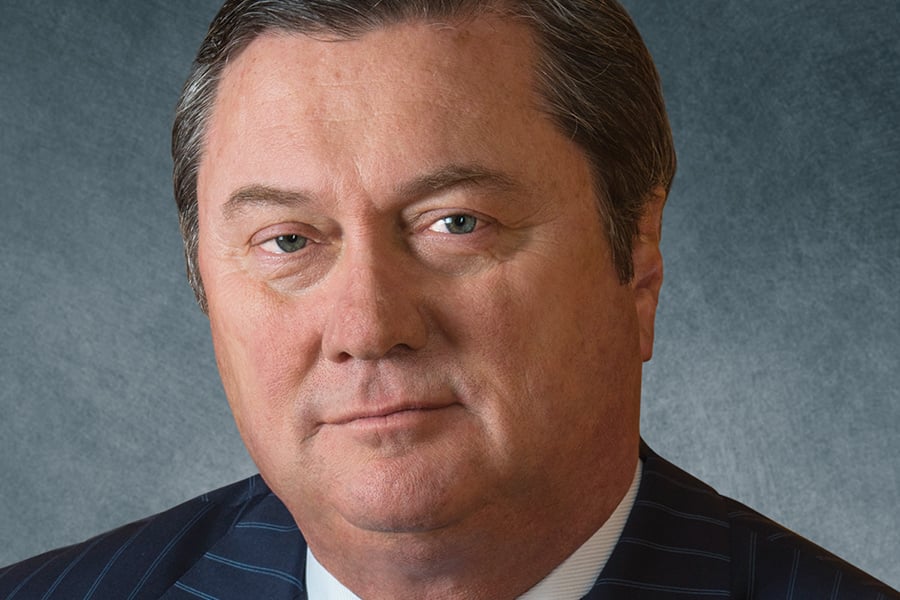

Though Ted Benna is often called the father of 401(k) plans, having created the first one in the early 1980s, Bob Reynolds might be a more apt choice for the title. Reynolds was the creator of Fidelity’s 401(k) programs, which brought plans to the masses, and then he put together the defined-contribution businesses of Great-West, Putnam and JPMorgan to form the current juggernaut Empower Retirement.
With a change in the administration imminent, what does Reynolds, the CEO of Putnam, think about the future of the 401(k)system, rampant industry consolidation and the ability of workplace savings platforms to help participants with all financial matters?
Though 401(k) plans seem to be one of the few bipartisan issues, as reflected in the recently introduced Neal-Brady bill. Reynolds is concerned that the system is an easy target if the government needs to raise money. He mentioned proposals such as providing tax credits rather than deductions for businesses that offer 401(k)s, requiring that a percentage of participants' savings go to a Roth, and imposing a financial transaction tax on 401(k)s as concerns.
Most important, according to Reynolds, is the need to make 401(k) plans easy and cost-effective for employers while limiting their liability because workers are 10 times more likely to save for retirement at work than on their own.
The SECURE Act was a good first step but Reynolds urges the government to make auto features required for all plans, not just new ones, as proposed in the Neal-Brady bill. If plans auto-enroll employees at a minimum contribution of 5% and then auto-escalate to a 10% contribution while using a professional managed investment like target-date funds, the accumulation issue will be solved. He also advocates for a federal rather than state-wide mandate.
Retirement income is still in the second or third inning, he said, and is not helped by the current low interest rates. Reynolds likes reverse mortgages because they allow older workers to keep saving and not tap into retirement accounts.
Workplace savings programs are the perfect place to administer financial wellness, which was a big driver for Empower’s acquisition of Personal Capital. Reynolds noted that through this acquisition, Empower offers participants the aggregation of assets, one-stop shopping and the integration of 401(k) savings accounts, which hold the second greatest portion of their capital for most people, after their homes. He mentioned that both Fidelity and Vanguard offer similar services.
Though some experts are concerned that too much record-keeper consolidation could limit choices, Reynolds said that there's no need for 20-plus providers and that the system will remain healthy even with five to 10 choices.
After the Personal Capital acquisition, some experts believed that Empower would no longer buy traditional competitors to grow. But the purchase of MassMutual’s worksite savings business, driven by its focus on smaller plans, and then the acquisition of Fifth Third’s retirement division, for which Empower provided white-labeled service, proved otherwise.
Scale matters, Reynolds noted, and allows providers to invest, especially in technology to provide a rich digital experience to participants.
What gets Reynolds these days? The ability of the workplace savings system to enable more coverage and savings. Though 401(k) plans are a bipartisan issue mentioned frequently by President Trump in tweets and speeches, Reynolds is concerned that the government sees the almost $20 trillion in defined-contribution plans and IRAs as low-hanging fruit and a way to fund other initiatives.
Having created two of the largest defined-contribution providers, Fidelity and Empower, over the past 30 years, Reynolds has a unique perspective along with street cred. He notes that 401(k) plans have brought Main Street to Wall Street, deeply affecting the economy while funding growth. Hopefully the government will not be shortsighted and do what we tell participants not to do — tap retirement savings to pay for today’s expenses.
Fred Barstein is founder and CEO of The Retirement Advisor University and The Plan Sponsor University. He is also a contributing editor for InvestmentNews’ RPA Convergence newsletter.

Rajesh Markan earlier this year pleaded guilty to one count of criminal fraud related to his sale of fake investments to 10 clients totaling $2.9 million.

From building trust to steering through emotions and responding to client challenges, new advisors need human skills to shape the future of the advice industry.

"The outcome is correct, but it's disappointing that FINRA had ample opportunity to investigate the merits of clients' allegations in these claims, including the testimony in the three investor arbitrations with hearings," Jeff Erez, a plaintiff's attorney representing a large portion of the Stifel clients, said.

Chair also praised the passage of stablecoin legislation this week.

Maridea Wealth Management's deal in Chicago, Illinois is its first after securing a strategic investment in April.
Orion's Tom Wilson on delivering coordinated, high-touch service in a world where returns alone no longer set you apart.
Barely a decade old, registered index-linked annuities have quickly surged in popularity, thanks to their unique blend of protection and growth potential—an appealing option for investors looking to chart a steadier course through today's choppy market waters, says Myles Lambert, Brighthouse Financial.
